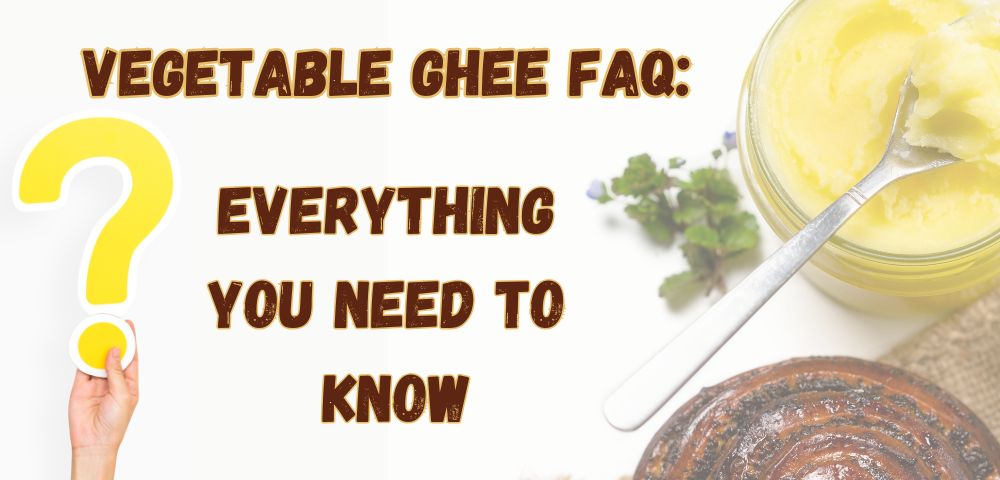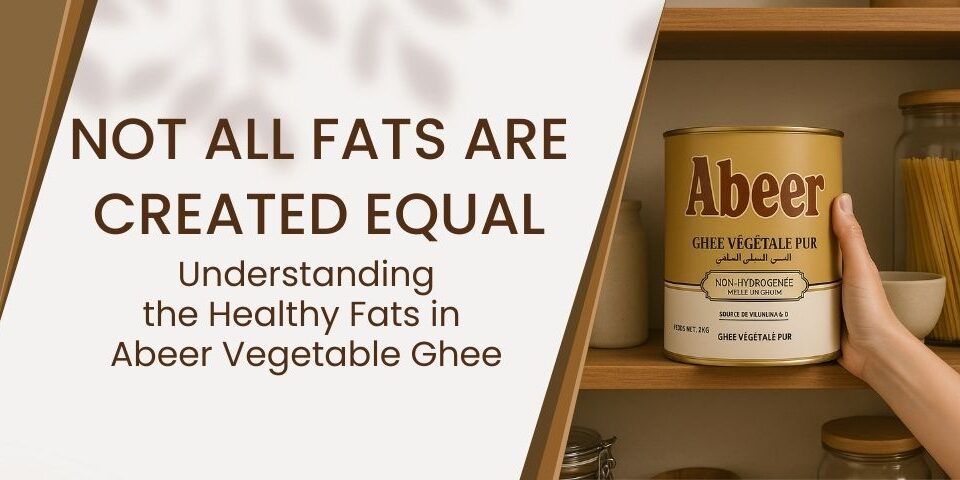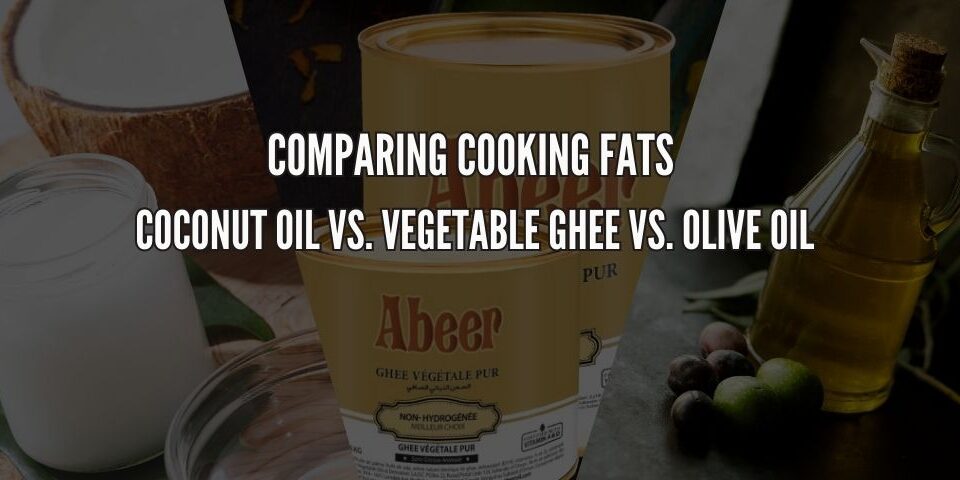
Vegetable Ghee vs. Butter Ghee: Which is Right for You?
December 30, 2024
The Environmental Impact of Using Vegetable Ghee: A Sustainable Choice
January 13, 2025Vegetable Ghee FAQ: Everything You Need to Know

Vegetable ghee has gained popularity as a plant-based alternative to traditional dairy ghee. Whether you’re new to vegetable ghee or exploring its potential uses, this comprehensive FAQ will help answer your most common questions, making it easier to understand how it fits into your diet and cooking routine.
1. What is Vegetable Ghee?
Vegetable ghee is a clarified butter substitute made from plant-based oils like coconut, palm, or sunflower oil. Unlike traditional ghee, which is made from cow or buffalo milk, vegetable ghee is completely dairy-free, making it suitable for vegans and those with lactose intolerance.
If you’re curious about the properties of vegetable ghee, check out our article on What is Vegetable Ghee? for more in-depth information.
2. How Does Vegetable Ghee Differ from Traditional Ghee?
The main difference between vegetable ghee and traditional ghee lies in their source. Traditional ghee is made from animal milk, while vegetable ghee is plant-based. Vegetable ghee does not contain lactose or casein, making it a suitable alternative for those with dairy sensitivities. However, vegetable ghee can be higher in certain fats depending on the oils used in its production.
For more on how vegetable ghee compares to traditional animal ghee, see our article on Animal Ghee vs. Vegetable Ghee.
3. Is Vegetable Ghee Healthy?
Vegetable ghee, when made from unrefined oils and free from hydrogenation, can be a healthy addition to your diet. It contains essential fatty acids and antioxidants. However, some commercially available vegetable ghees may contain trans fats due to hydrogenation. It’s important to choose vegetable ghee made with non-hydrogenated oils to ensure it retains its health benefits.
Health authorities like the American Heart Association recommend choosing healthy fats, such as those found in unrefined vegetable ghee, over trans fats.
4. Can I Use Vegetable Ghee for Cooking?
Yes, vegetable ghee has a high smoke point (similar to traditional ghee), making it ideal for frying, sautéing, and baking. It can be used in a variety of recipes where butter or oil is typically used, offering a rich, buttery flavor without dairy.
To get inspired, check out our collection of Vegetable Ghee Recipes that are easy to prepare and perfect for everyday meals.
5. How Should I Store Vegetable Ghee?
Vegetable ghee should be stored in an airtight container in a cool, dry place. Unlike butter, it does not require refrigeration due to its low moisture content and can be stored at room temperature for an extended period.
For long-term storage, ensure the ghee is kept away from direct sunlight and heat to preserve its flavor and nutritional properties.
6. Is Vegetable Ghee Suitable for Vegan Diets?
Yes, vegetable ghee is a vegan-friendly option since it is made from plant oils. It provides a dairy-free alternative to traditional ghee, making it an excellent addition to plant-based diets.
If you’re looking for more vegan-friendly uses of ghee, our article on Baking with Vegetable Ghee might inspire you with some delicious recipes.
7. What Are the Nutritional Benefits of Vegetable Ghee?
Vegetable ghee contains healthy fats, including medium-chain triglycerides (MCTs), which are quickly metabolized and provide a source of energy. It’s also free from lactose and casein, making it a suitable choice for individuals with dairy sensitivities.
However, the nutritional profile can vary based on the type of oil used. Always check the label for ingredients and opt for unrefined, cold-pressed oils when possible to maximize the benefits.
8. Can Vegetable Ghee Help with Weight Loss?
Some studies suggest that the MCTs in vegetable ghee may assist with weight management by boosting metabolism and promoting satiety. However, more research is needed to confirm these potential benefits. Like any fat, vegetable ghee should be consumed in moderation as part of a balanced diet.
The National Institute of Health provides further insights into the potential benefits of MCTs for weight management.
9. Are There Any Side Effects of Consuming Vegetable Ghee?
When consumed in moderation, vegetable ghee is generally safe. However, overconsumption can lead to excessive calorie intake and potential weight gain. It’s important to be mindful of portion sizes and choose vegetable ghee free from trans fats to avoid negative health effects.
10. How Do I Choose the Best Vegetable Ghee?
Look for vegetable ghee made from unrefined oils like coconut or palm oil, which are free from hydrogenation. Always check the product label for any additives or preservatives that may reduce the health benefits. Organic vegetable ghee is often a good choice for those looking for high-quality products.
Conclusion
Vegetable ghee offers a versatile, dairy-free alternative to traditional ghee and other cooking oils. By understanding its health benefits, uses, and differences from butter ghee, you can make an informed decision about incorporating vegetable ghee into your cooking.
For those looking for delicious ways to use vegetable ghee, our article on Vegetable Ghee Recipes provides a wealth of tasty ideas.



